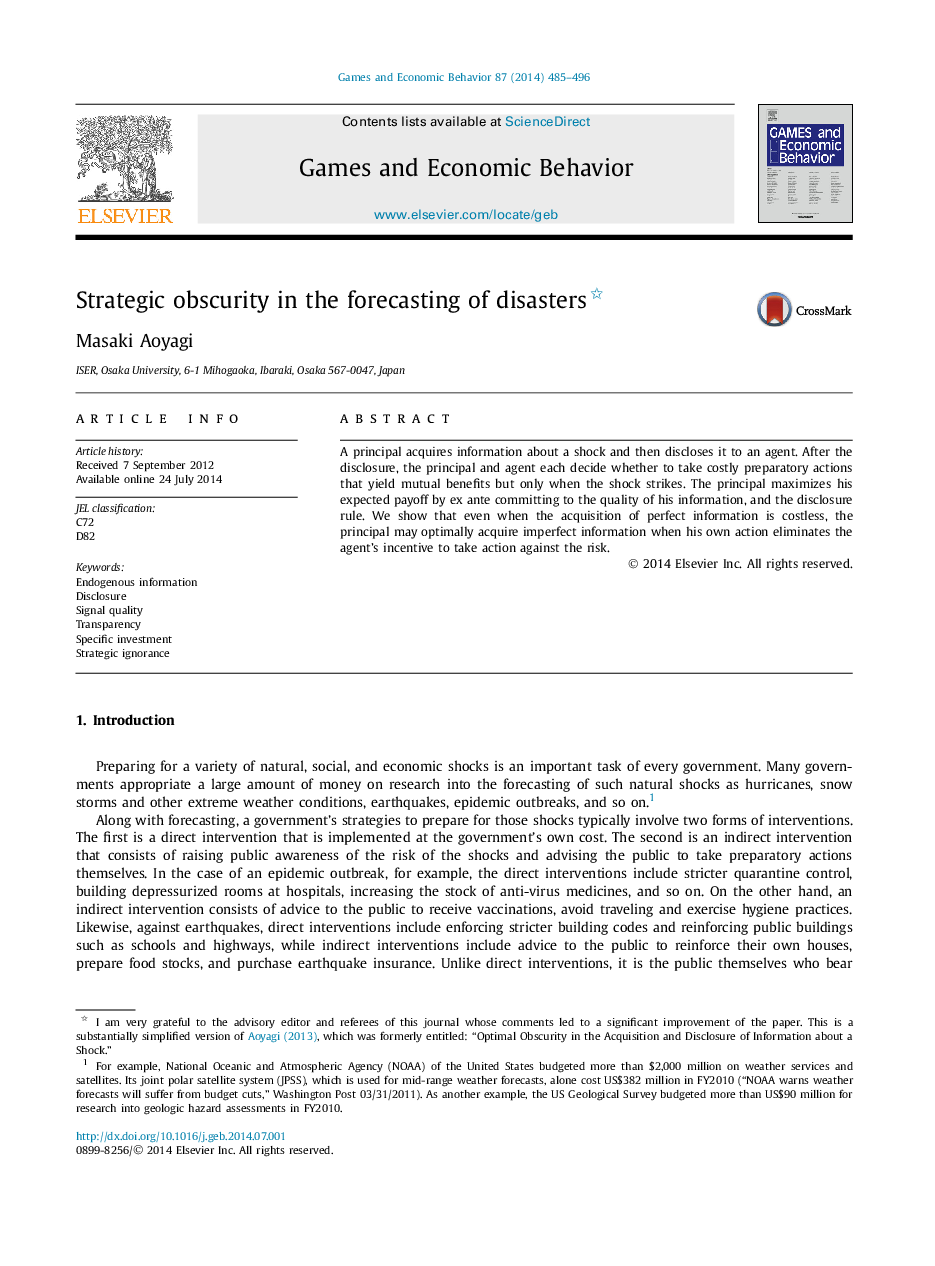| Article ID | Journal | Published Year | Pages | File Type |
|---|---|---|---|---|
| 5071870 | Games and Economic Behavior | 2014 | 12 Pages |
â¢A principal acquires information about a shock and then discloses it to an agent.â¢They then decide whether to take costly preparatory actions that yield mutual benefits but only when the shock strikes.â¢The principal has a continuous choice of information quality.â¢Even if information acquisition is costless, the principal may be better off acquiring imperfect information.
A principal acquires information about a shock and then discloses it to an agent. After the disclosure, the principal and agent each decide whether to take costly preparatory actions that yield mutual benefits but only when the shock strikes. The principal maximizes his expected payoff by ex ante committing to the quality of his information, and the disclosure rule. We show that even when the acquisition of perfect information is costless, the principal may optimally acquire imperfect information when his own action eliminates the agent's incentive to take action against the risk.
